Contents
Psilocybe cubensis, Psilocybe Cuban, San Isidro are the names of the same mushroom. The first mention of it appeared at the beginning of the 19th century, when the American mycologist Franklin Earl discovered the first specimens during his stay in Cuba. Subsequently, in 1948, this mushroom was described by the German scientist Rolf Singer and it was then that it was established that it belongs to the genus Psilocybe and is a representative of the Hymenogaster family. The official species name is Psilocybe cubensis.
What does psilocybe cubensis look like?
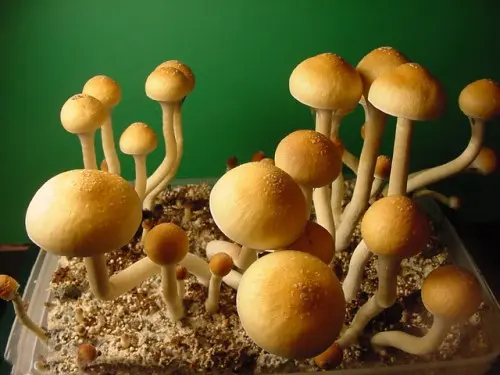
Psilocybe cubensis is an agaric mushroom that belongs to the category of species that affect the human psyche. It can be recognized by certain specific qualities.
Cap Description
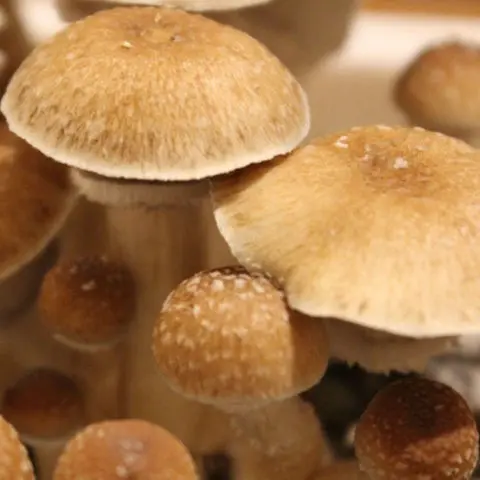
Psilocybe cubensis is distinguished by a pale yellow hue of the cap, but as it matures, it darkens and acquires a brownish tint. The shape of the top also changes during the growth period. Initially, the cap is cone-shaped, and then becomes convex, resembling a bell. The surface is smooth. The cap diameter can reach from 1 to 8 cm.
Pulp of a light shade, a strong consistence. When damaged, it becomes bluish in color.
On the reverse side of the cap are frequent adherent plates. They are covered with a spore-bearing layer, the color of which varies from grayish to gray-violet with a white tint along the edge. Spores of psilocybe cubensis are thick-walled in the form of an ellipse or oval, 10-17 x 7-10 microns in size.
Description of the leg
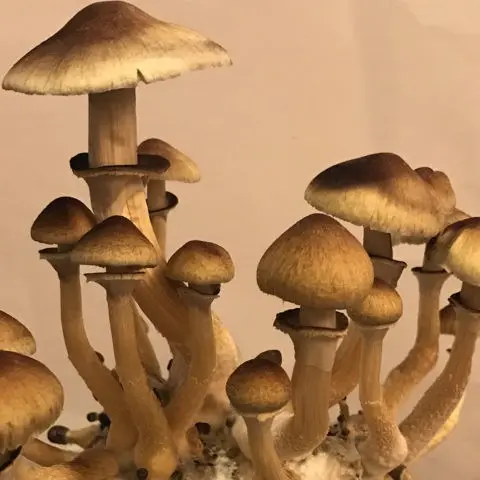
The leg of the psilocybe cubensis is light, elongated, often slightly curved. Its height varies from 4 to 15 cm. It is 4-10 mm in diameter. It has a white dry ring on it.
Where and how to grow
Under natural conditions, psilocybe cubensis can be found in Central America. This species prefers to grow in the tropics and subtropics, in pasture meadows rich in manure. There have also been cases of its appearance in Cambodia, Mexico, Australia, India and Thailand. Duration of fruiting – year-round in the presence of favorable conditions.
Is the mushroom edible or not?
Psilocybe cubensis belongs to the category of hallucinogenic mushrooms due to the high content of toxins of the tryptamine group – psilocin, psilocybin. When it is used, drug intoxication occurs, and pseudohallucinations appear.
The impact of Cuban psilocybe on the human psyche
At the same time, the emotional background of a person changes dramatically depending on the mood and state, and may be accompanied by such manifestations:
- euphoria;
- unbridled joy;
- increased erotic attraction;
- feeling of weightlessness and flight;
- fury;
- aggression;
- panic;
- unreasonable fear;
- loss of consciousness.
After use, the psychedelic effect is felt after 20-45 minutes. and lasts about 4-6 hours. During the first hour, a person feels obvious signs of intoxication, such as nausea, stomach pain, chills, and then hallucinations appear.
This type of hallucinogenic mushrooms is not toxic and cannot cause death of a person. But with its regular use, the functioning of the nervous system, kidneys and heart is disrupted.
Twins and their differences
There are several types of mushrooms that, in their appearance, are very similar to psilocybe cubensis. But each of them has a number of characteristic differences.
The conocybe is tender. This species is inedible. It grows in meadows, pastures and well-lit forest lawns during the warm season. It differs in small size: height – 4-8 cm, diameter – 1-3 cm. A characteristic difference is thick brown plates, as well as an ocher-orange color of the cap. The official name is Conocybe tenera.
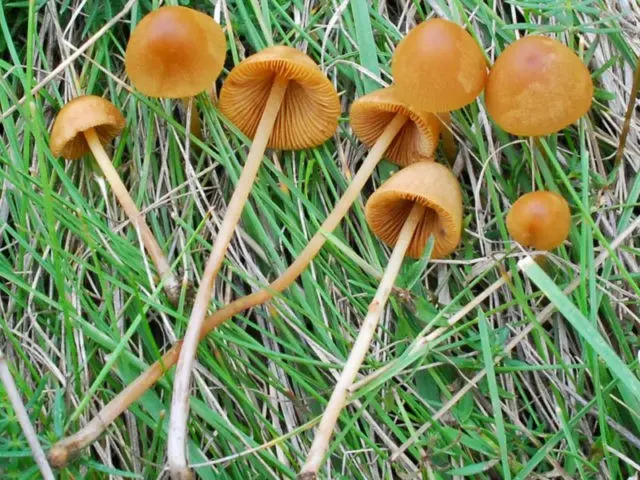
Psilocybe bordered. A small hallucinogenic mushroom that prefers to grow on compost heaps, rotting fruit, manure. It can be distinguished from psilocybe cubensis by the remains of a white veil along the edge of the cap. The fruiting period is from August to November. The official name is Psilocybe fimetaria.
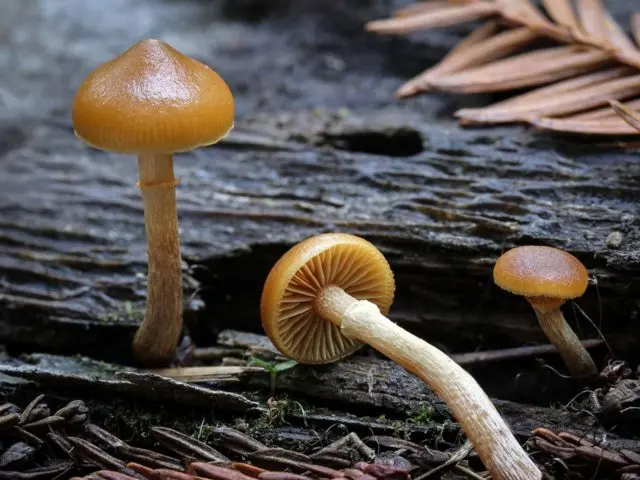
Members of the genus Paneolus. A characteristic difference between these hallucinogenic mushrooms is their small size and black spore layer on the back of the cap. They prefer to grow in dense grass on soil rich in organic matter.
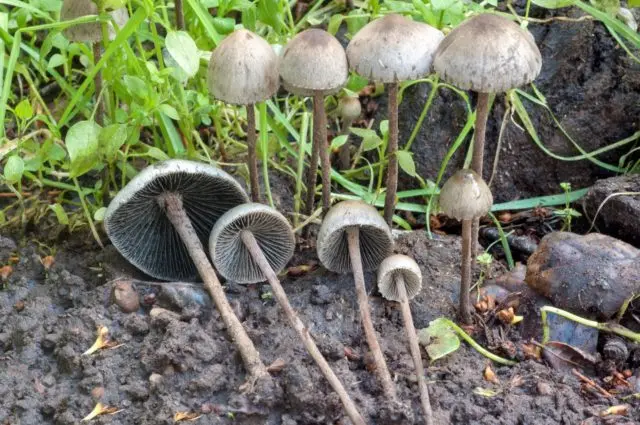
Conclusion
Psilocybe cubensis is of interest to specialists in order to study its therapeutic action in more detail. But all scientific research is carried out under strict control.
Any attempt to collect, harvest and grow this species in private is regarded as a violation of the law and threatens with criminal liability, as well as unpredictable health consequences.









